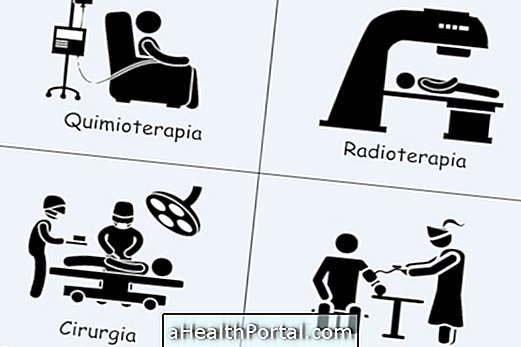Uterus transplantation may be an option for women who wish to become pregnant but who do not have a uterus or who do not have a healthy uterus, making pregnancy impossible.
However, uterus transplantation is a complex procedure that can be performed only on women and is still being tested in countries such as the United States and Sweden.
How the uterus transplant is done
In this surgery, doctors remove the sick uterus, keeping the ovaries and placing another woman's healthy uterus in place, without it being attached to the ovaries. This "new" uterus can be removed from a family member with the same blood type or be donated by another compatible woman, and the possibility of using donated uteri after death is also being studied.
In addition to the uterus, the recipient must also have a part of the other woman's vagina to facilitate the procedure and must take medication to prevent rejection of the new uterus.

Normal uterus

Transplanted uterus
Is it possible to get pregnant naturally after the transplant?
After 1 year of waiting, to find out if the uterus is not rejected by the body, the woman can become pregnant through in vitro fertilization, because natural pregnancy is impossible since the ovaries are not connected to the uterus.
Doctors do not connect the new uterus to the ovaries because it would be very difficult to prevent scars that would make it difficult for the egg to move through the fallopian tubes to the uterus, which could make pregnancy difficult or facilitate the development of an ectopic pregnancy, for example. .
How IVF is done
For in vitro fertilization to happen, before the uterus transplant, doctors remove mature eggs from the woman so that after being fertilized, in the laboratory, they can be placed inside the transplanted uterus, allowing pregnancy. Delivery must be performed by caesarean section.
The uterus transplant is always temporary, remaining only long enough for 1 or 2 pregnancies, to prevent the woman from having to take immunosuppressive drugs for life.
Risks of uterus transplantation
Although it can make pregnancy possible, transplantation of the uterus is very risky, as it can bring several complications for the mother or baby. Risks include:
- Presence of blood clots;
- Possibility of infection and rejection of the uterus;
- Increased risk of pre-eclampsia;
- Increased risk of miscarriage at any stage of pregnancy;
- Baby growth restriction and
- Premature birth.
In addition, the use of immunosuppressive drugs, to prevent organ rejection, can cause other complications, which are not yet fully known.
Was this information helpful?
Yes No
Your opinion is important! Write here how we can improve our text:
Any questions? Click here to be answered.
Email in which you want to receive a reply:
Check the confirmation email we sent you.
Your name:
Reason for visit:
--- Choose your reason --- DiseaseLive betterHelp another personGain knowledge
Are you a health professional?
NoMedicalPharmaceuticalsNurseNutritionistBiomedicalPhysiotherapistBeauticianOther
























